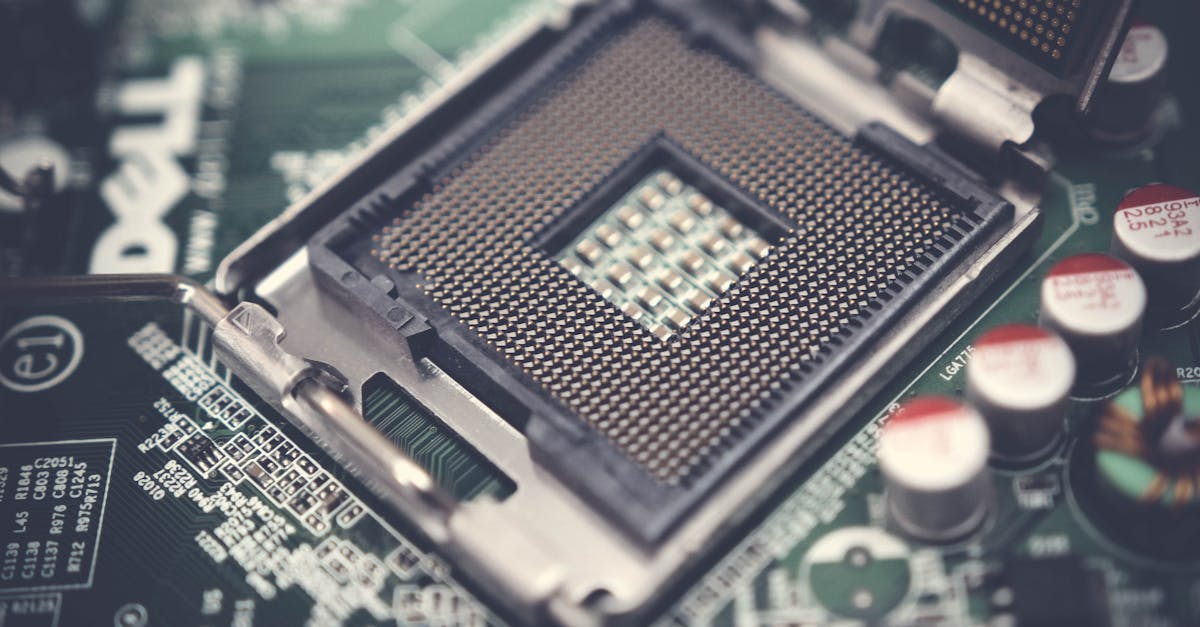Introduction: The Clash of Titans
In the ever-evolving world of computer processors, two names consistently stand out: Intel and AMD. Specifically, the Intel Core i5 and AMD Ryzen 5 series have been at the forefront of the mid-range CPU market, capturing the attention of gamers, content creators, and everyday users alike. But which one truly comes out on top in terms of speed and efficiency? This is a question that has sparked countless debates, and today, we aim to provide some clarity.
Interestingly enough, it’s common knowledge that both Intel and AMD have their unique strengths and weaknesses. However, what’s fascinating is how these strengths play out in real-world scenarios. Whether you’re building a new PC or upgrading an existing one, understanding the nuances of these processors can make a significant difference in your overall computing experience.
Performance Showdown: Speed and Efficiency
Raw Processing Power
When it comes to raw processing power, the Intel Core i5 and AMD Ryzen 5 are neck and neck. The Intel Core i5-12600K, for instance, boasts impressive single-core performance, which is crucial for tasks like gaming. On the other hand, the AMD Ryzen 5 5600X excels in multi-core performance, making it a better choice for multitasking and content creation.
| Processor | Cores/Threads | Base Clock Speed | Max Boost Clock |
|---|---|---|---|
| Intel Core i5-12600K | 10/16 | 3.7 GHz | 4.9 GHz |
| AMD Ryzen 5 5600X | 6/12 | 3.7 GHz | 4.6 GHz |
It’s worth mentioning that while the Intel Core i5 has more cores and threads, the Ryzen 5’s architecture allows it to perform exceptionally well in multi-threaded applications. If you’re like me and often find yourself running multiple applications simultaneously, the Ryzen 5 might just edge out the Intel Core i5 in terms of efficiency.
Gaming Performance
For gamers, the choice between Intel and AMD can be particularly challenging. I’ve been there, standing in a store, staring at two boxes, unsure of which one to choose. The reality is that both processors offer excellent gaming performance, but there are some nuances.
- Intel Core i5-12600K: Known for its superior single-core performance, the Intel Core i5 often delivers higher frame rates in games. This is particularly noticeable in titles that are not optimized for multi-core processors.
- AMD Ryzen 5 5600X: While it may not always match the Intel Core i5 in single-core performance, the Ryzen 5 is no slouch. It offers a more balanced performance, which can be beneficial in games that utilize multiple cores effectively.
Interestingly, what’s surprising is that the difference in gaming performance between these two processors is often minimal. You might find that the choice of GPU, RAM, and other components has a more significant impact on your gaming experience.
Efficiency and Power Consumption
Energy Efficiency
Energy efficiency is another crucial factor to consider, especially if you’re environmentally conscious or looking to build a quiet, cool-running system. The AMD Ryzen 5 series has traditionally been more power-efficient compared to Intel’s offerings. The Ryzen 5 5600X, for example, has a TDP (Thermal Design Power) of 65W, whereas the Intel Core i5-12600K has a TDP of 125W.
| Processor | TDP (W) |
|---|---|
| Intel Core i5-12600K | 125 |
| AMD Ryzen 5 5600X | 65 |
It’s funny how a lower TDP not only means less power consumption but also less heat generation, which can lead to quieter cooling solutions. If you’re someone who values a silent PC, the Ryzen 5 might be the better option.
Thermal Performance
Thermal performance is closely tied to energy efficiency. The higher the TDP, the more heat the processor will generate. This can be a critical factor if you’re building a compact or mini-ITX system where cooling options are limited.
One thing I’ve learned is that Intel’s higher TDP often necessitates more robust cooling solutions, which can add to the overall cost and complexity of your build. On the other hand, AMD’s Ryzen 5 processors tend to run cooler, making them easier to manage in terms of thermal performance.
Price vs. Performance: Getting the Most Bang for Your Buck
Cost Considerations
When it comes to price, AMD has traditionally offered more competitive pricing compared to Intel. The Ryzen 5 5600X, for instance, is often priced lower than the Intel Core i5-12600K, making it an attractive option for budget-conscious buyers.
| Processor | Price |
|---|---|
| Intel Core i5-12600K | $320 |
| AMD Ryzen 5 5600X | $300 |
You might find this helpful: AMD often includes a stock cooler with their Ryzen processors, whereas Intel does not. This can save you an additional $20-$50, depending on the cooling solution you choose.
Longevity and Future-Proofing
It’s safe to say that both Intel and AMD are committed to innovation, but their approaches to future-proofing differ. Intel tends to release new socket types more frequently, which can make upgrading more challenging. AMD, on the other hand, has maintained socket AM4 for several generations, making it easier to upgrade your CPU without needing a new motherboard.
If you’re like me and prefer to upgrade your system incrementally, AMD’s approach might be more appealing. There’s something to be said for the peace of mind that comes with knowing your motherboard will support future CPU upgrades.
Real-World Applications: Which Processor Excels Where?
Content Creation
For content creators, the choice between Intel and AMD can significantly impact your workflow. The AMD Ryzen 5 series, with its superior multi-core performance, is often better suited for tasks like video editing, 3D rendering, and software development.
- Video Editing: The Ryzen 5 5600X’s multi-core performance allows for faster rendering times and smoother playback during editing.
- 3D Rendering: Applications like Blender and Autodesk Maya benefit from the Ryzen 5’s ability to handle multiple threads efficiently.
- Software Development: Compiling code can be a resource-intensive task, and the Ryzen 5’s multi-core capabilities can significantly reduce compile times.
Everyday Use
For everyday use, such as browsing the web, streaming videos, and using office applications, both processors perform admirably. However, it’s interesting that the Intel Core i5’s superior single-core performance can make everyday tasks feel snappier.
- Web Browsing: Both processors handle web browsing with ease, but the Intel Core i5 may offer slightly faster page load times.
- Streaming: Whether you’re streaming videos on YouTube or Netflix, both processors provide a smooth experience.
- Office Applications: Applications like Microsoft Office and Google Workspace run efficiently on both processors, but the Intel Core i5’s single-core performance can make tasks like opening large spreadsheets or complex documents feel quicker.
Making the Choice: What’s Right for You?
Assessing Your Needs
When it comes to choosing between the Intel Core i5 and AMD Ryzen 5, the best processor for you will depend on your specific needs and use cases. Here are some questions to consider:
- Are you a gamer? If gaming is your primary concern, the Intel Core i5’s superior single-core performance might be more appealing.
- Do you multitask or create content? If you often run multiple applications simultaneously or engage in content creation, the AMD Ryzen 5’s multi-core performance could be more beneficial.
- Are you on a budget? If cost is a significant factor, the AMD Ryzen 5 offers excellent performance at a lower price point.
- Do you value energy efficiency? If you’re looking to build a quiet, cool-running system, the AMD Ryzen 5’s lower TDP might be more suitable.
Future Considerations
It’s interesting that future-proofing is another important consideration. If you plan to upgrade your system incrementally, AMD’s commitment to socket AM4 compatibility might make the Ryzen 5 a more attractive option. On the other hand, if you’re someone who prefers to overhaul your system entirely every few years, Intel’s frequent socket updates might not be a significant concern.
Wrapping Up: The Verdict
In the battle between the Intel Core i5 and AMD Ryzen 5, there’s no one-size-fits-all answer. Both processors offer excellent performance, but their strengths lie in different areas. The Intel Core i5 excels in single-core performance, making it a great choice for gamers and everyday users who value speed and responsiveness. The AMD Ryzen 5, with its superior multi-core performance and energy efficiency, is ideal for multitaskers and content creators.
Ultimately, the best processor for you will depend on your specific needs, budget, and future plans. By carefully considering these factors, you can make an informed decision that will provide you with the speed and efficiency you need for years to come.
Whether you’re building a new PC or upgrading an existing one, the choice between Intel and AMD is one of the most important decisions you’ll make. So take your time, weigh your options, and choose the processor that best meets your needs. Happy computing!











